|
My name is Erik Ballast from The Netherlands. This is a Dräger Dolphin rebreather , rebuilt as a manually controlled closed circuit rebreather. I have been looking and searching on the internet for a long time before building this rebreather in this way. Many homemade parts made by other people seemed dangerous in use to me. Often they are plastic welded parts, or just glued parts. Oxygen injection with complex valves and complicated tubing are not my thing. My project is simple and reliable. If you have any questions about my rig, feel free to e-mail me at erik@3R1K.nl |
|
Here you see the front view of the final version. Most
parts that are used are of the original Dolphin rebreather. The oxygen booster
|
|
Intermezzo: Gas-Booster The new developed Gas Booster Pro of Submatix is used to dosage the oxygen in closed systems (Submatix SMS, KISS style). The system is connected to the oxygen supply by the help of an inflator hose. In case of a damage, the quick-coupling will help to re-combine immediately. The booster consists of a micro filter, an adjustable precision flow nozzle and a gas booster to feed the gas manually to the system. By the help of a low pressure hose the system is supplied with the needed gas. |
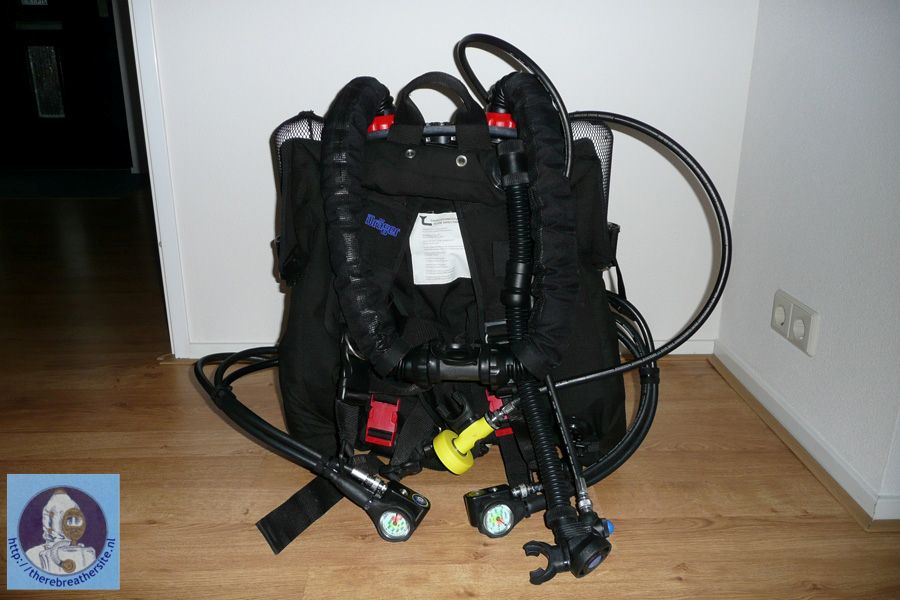 |
|
Here you see the backside. The Stainless steel frame can stand
up without falling, with the mounted bottles. This feature made it easy to strap
the unit on while
standing in a car or on a boat. Of course the diluent is on the left
(L(eft) = lean gas) and the oxygen is on the right |
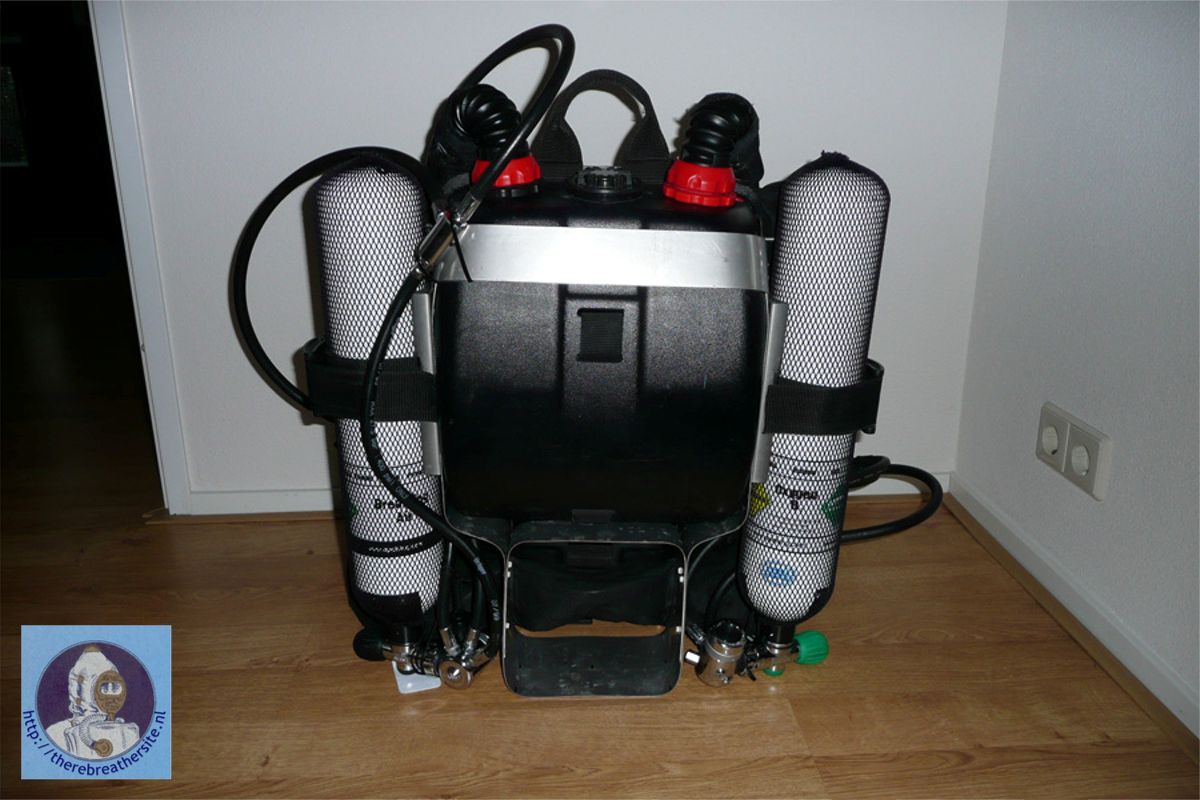 |
|
I chose to be able to inject oxygen and diluent manually. Many
rebreathers are depending on an ADV for flushing the loop by
inhaling through the mouth and exhaling through the nose. When my
oxygen is high, the last thing I want is to take another breath of
the high PPO2 mixture. I have installed two ports available at
http://www.tecme.de
for injection. The red ring, which is on the exhale side is for
oxygen. I chose the exhale side because the oxygen can than better
mix and has to make his way through the scrubber first. My PPO2
monitoring is of course in the inhale lung. When you add oxygen
straight in the inhale lung, to my opinion the cells can not give an
accurate information. It is possible to inject the oxygen right in
to the cells, which is not exact PPO2 you are breathing. On the
Inhale side I have installed a port for diluent injection. If my
PPO2 is too high, I want to be able to boost diluent immediately
into the lung, not to depend on the ADV which gives a delay. De
connections are simple inflator hoses. Easy to connect and
disconnect. |
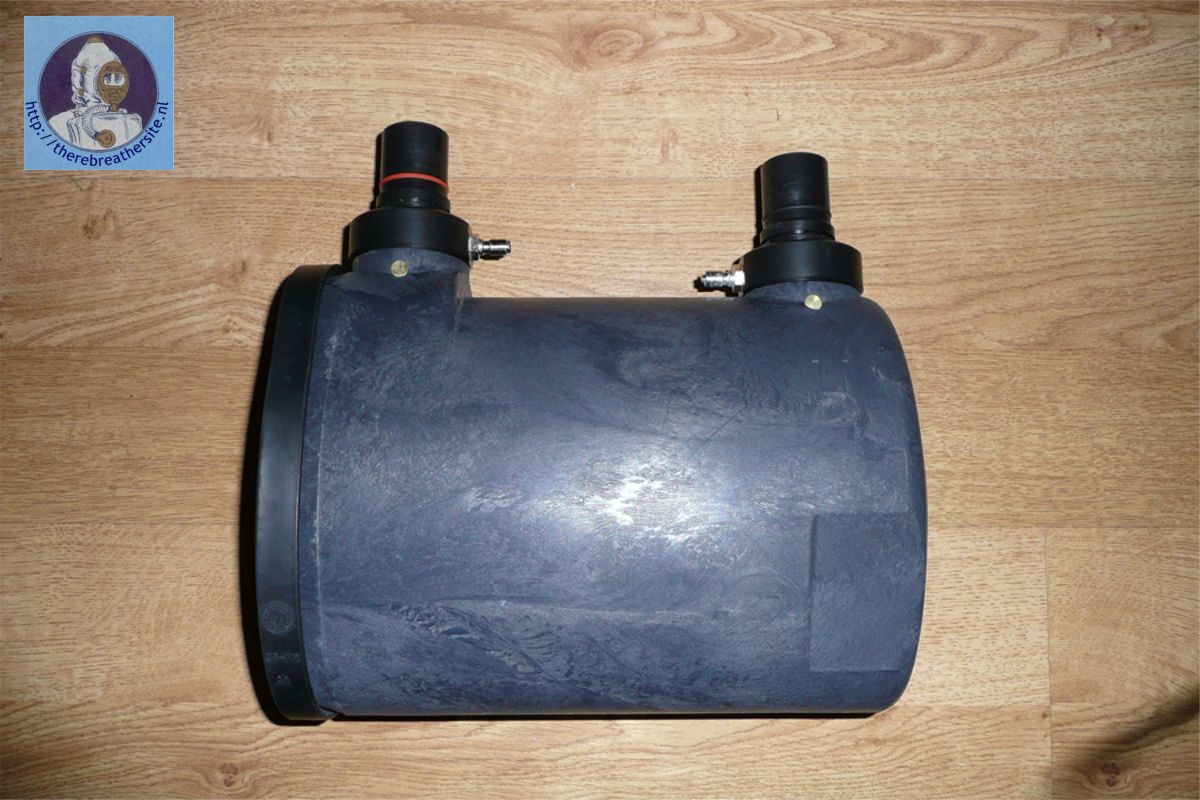 |
|
Easy to install in about five minutes. |
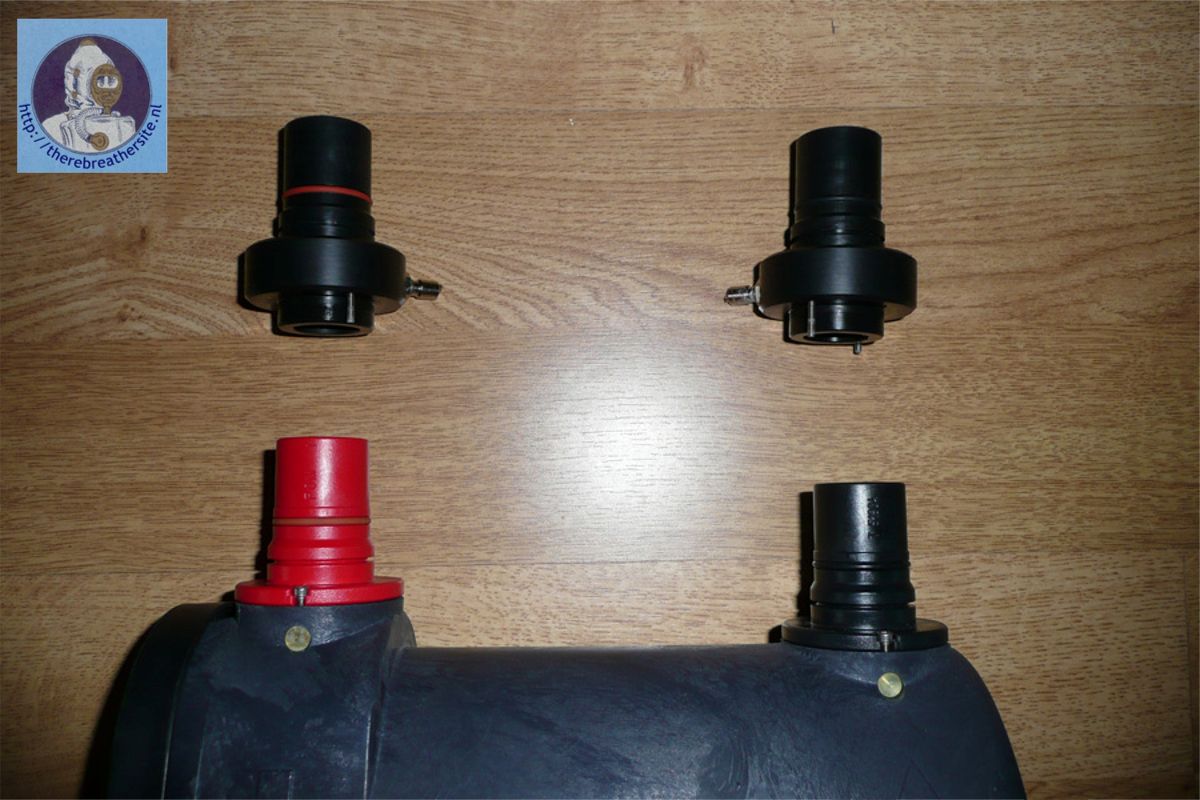 |
|
The frame I made from stainless steel. I just bought a strip and
bended it into shape with the curves of the original shell. To give
it stability I added a strip on top and on the lower side. It can
stand alone, even with the bottles attached. |
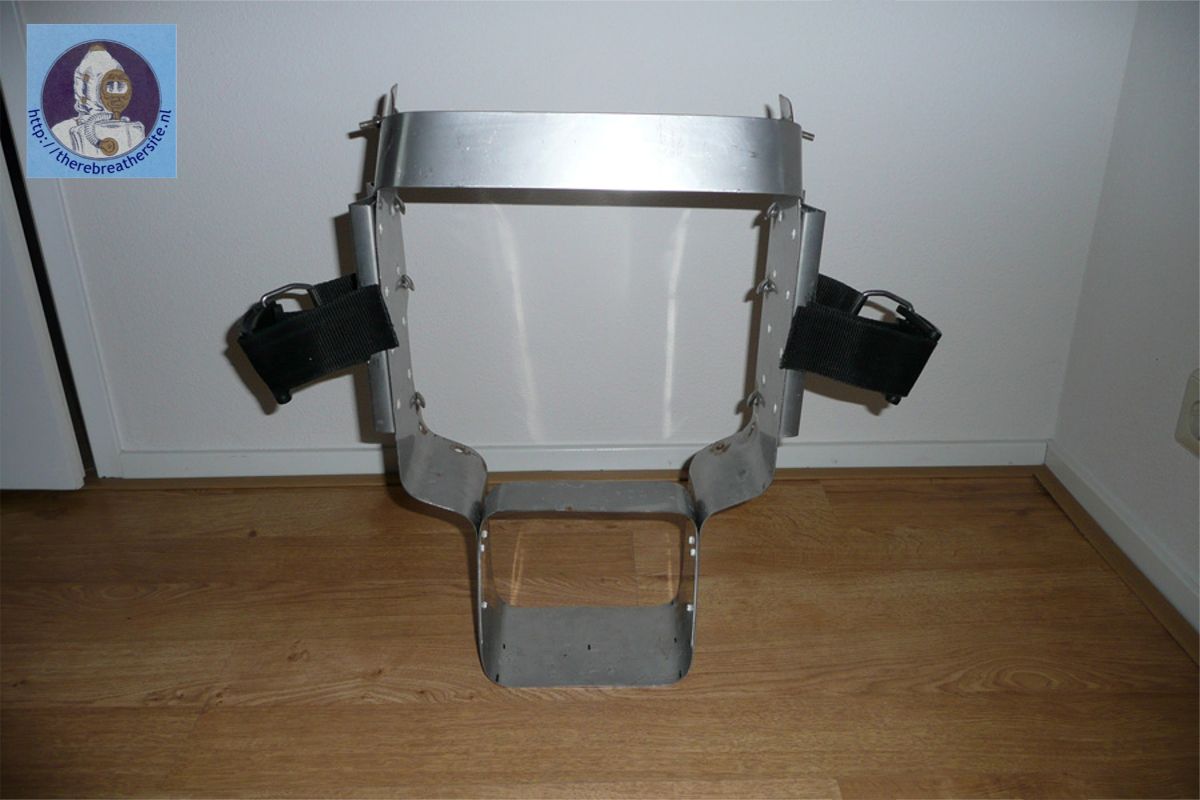 |
|
This is the backside of the frame. |
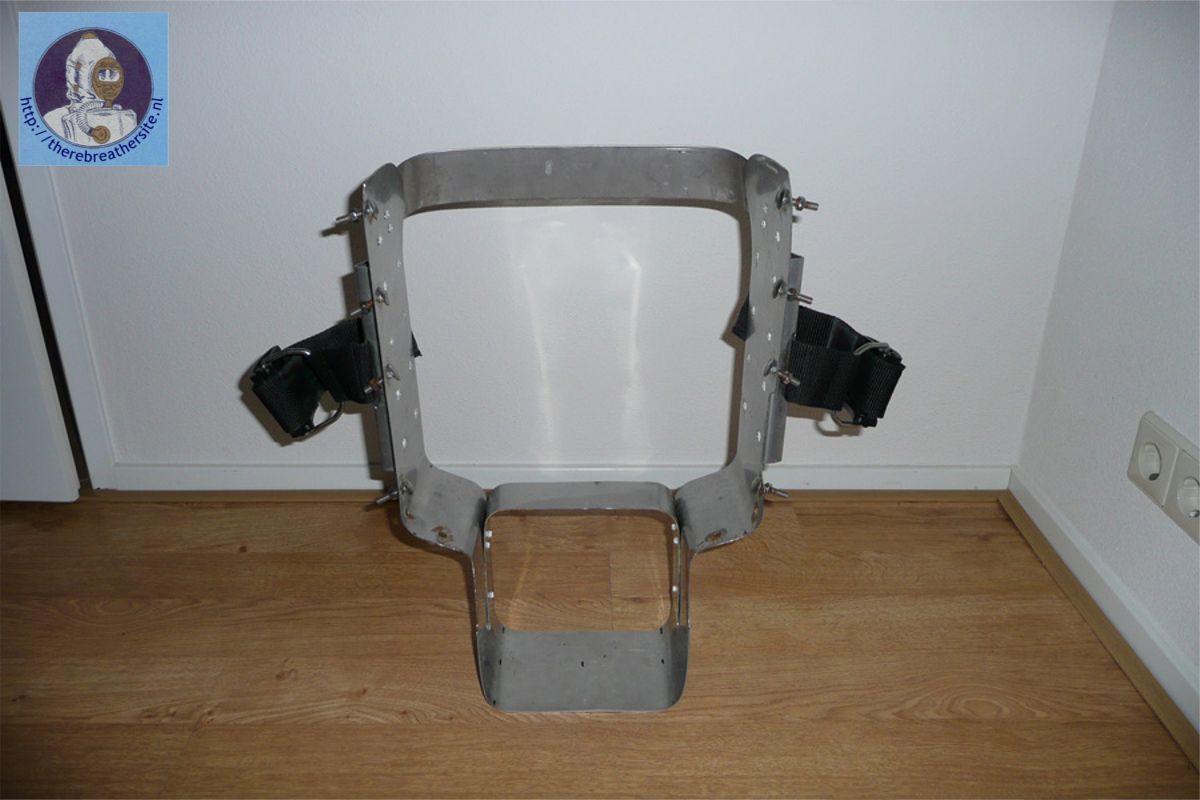 |
|
Side view of the frame. |
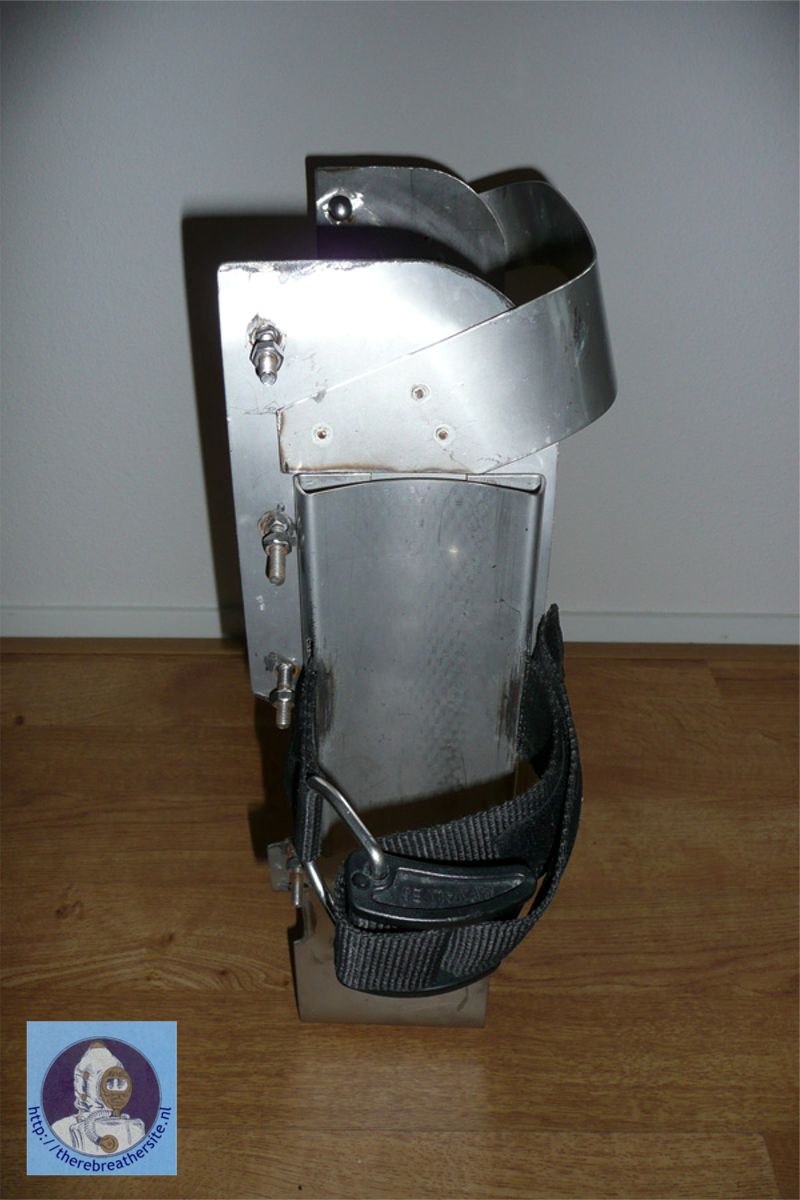 |
|
To hold the bottles in place and to make sure they don't twist or
turn I installed a curved bracket in the shape of the bottles. With
normal straps they are held in place. The frame is easy for
vacations, cause it is small and also bigger size bottle can be
fitted. |
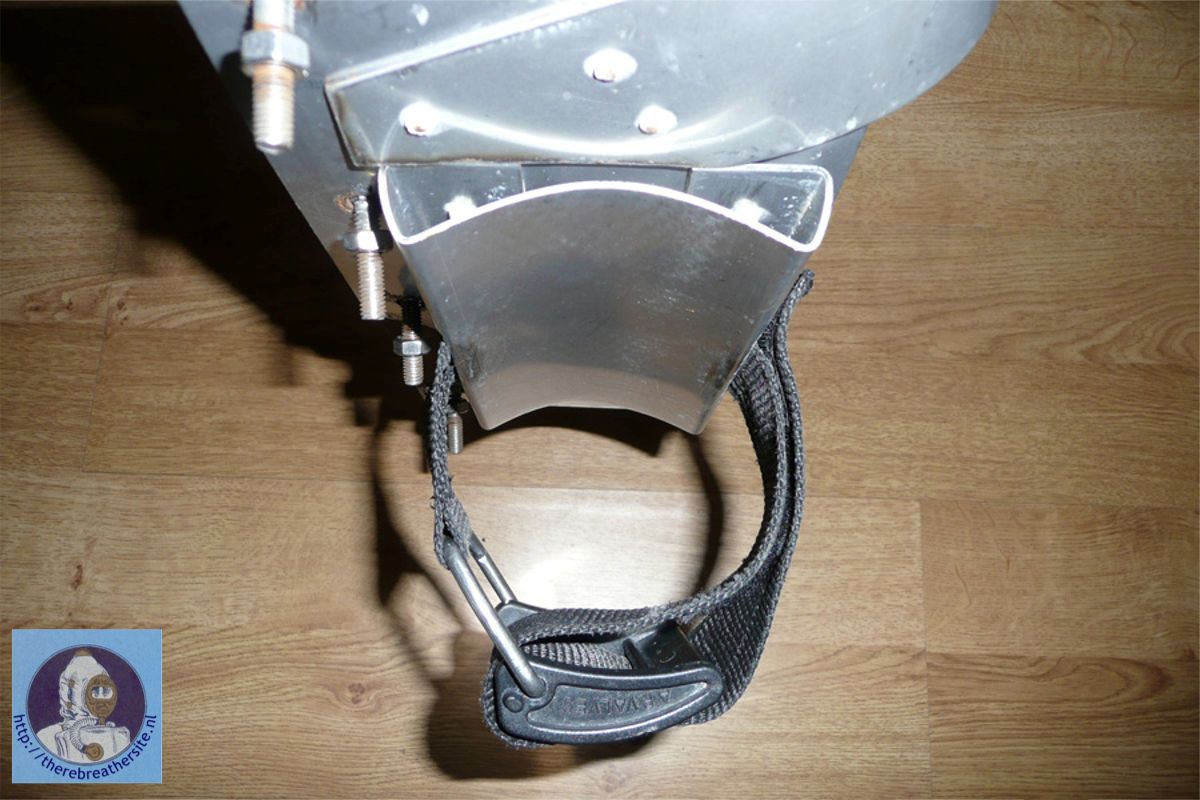 |
|
Here the 3-liter bottles are attached. I used Inspiration bottles. |
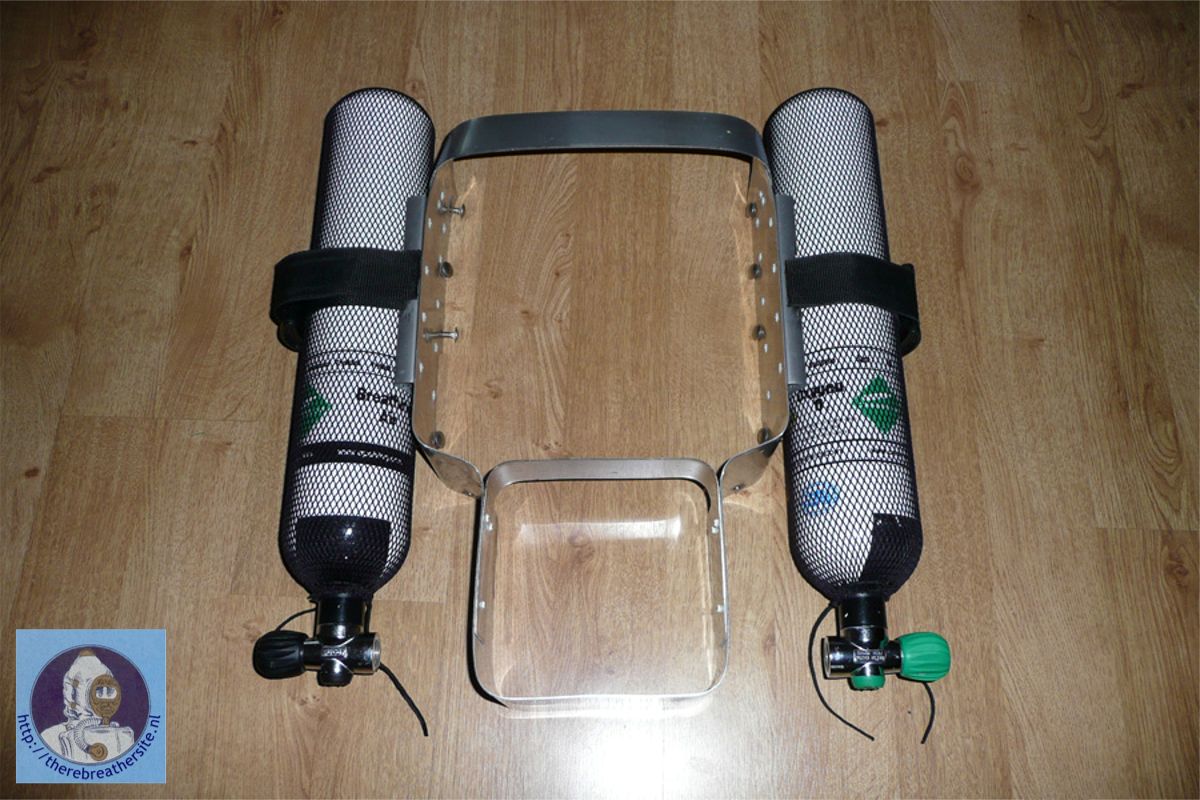 |
|
With APValves valves for easy opening and closing while in use. |
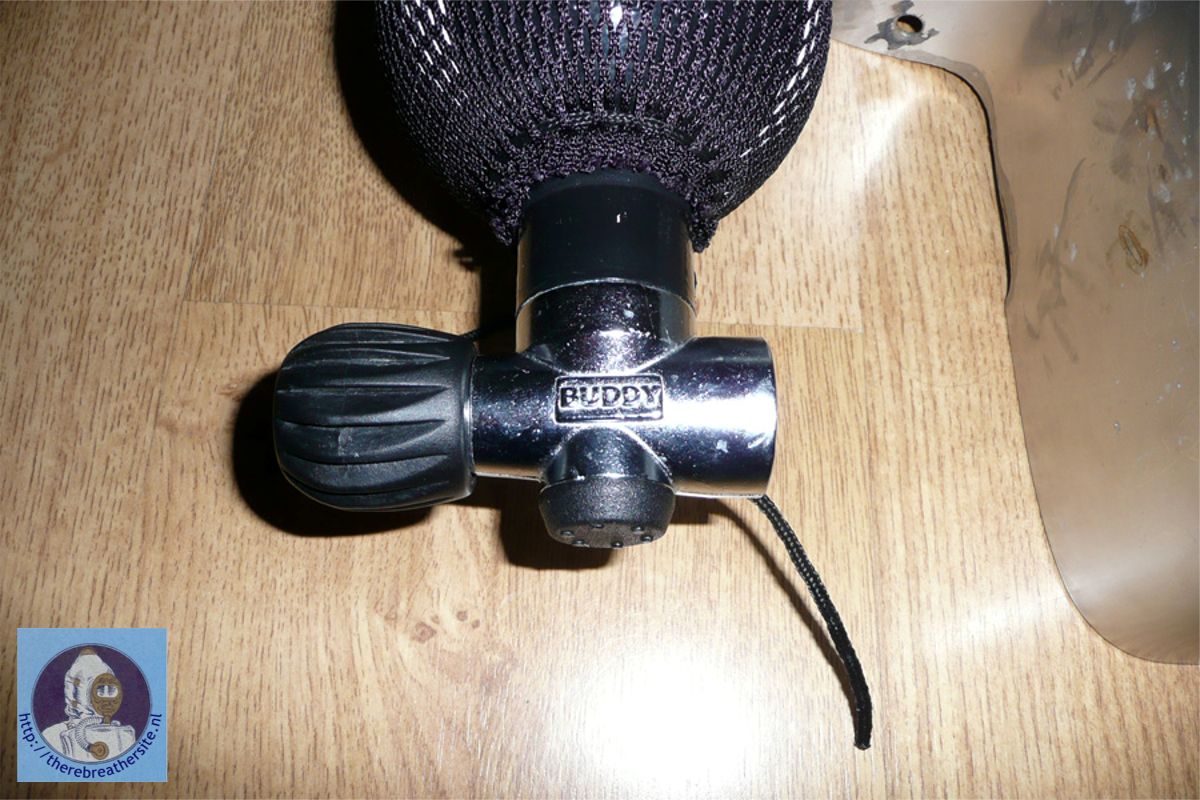 |
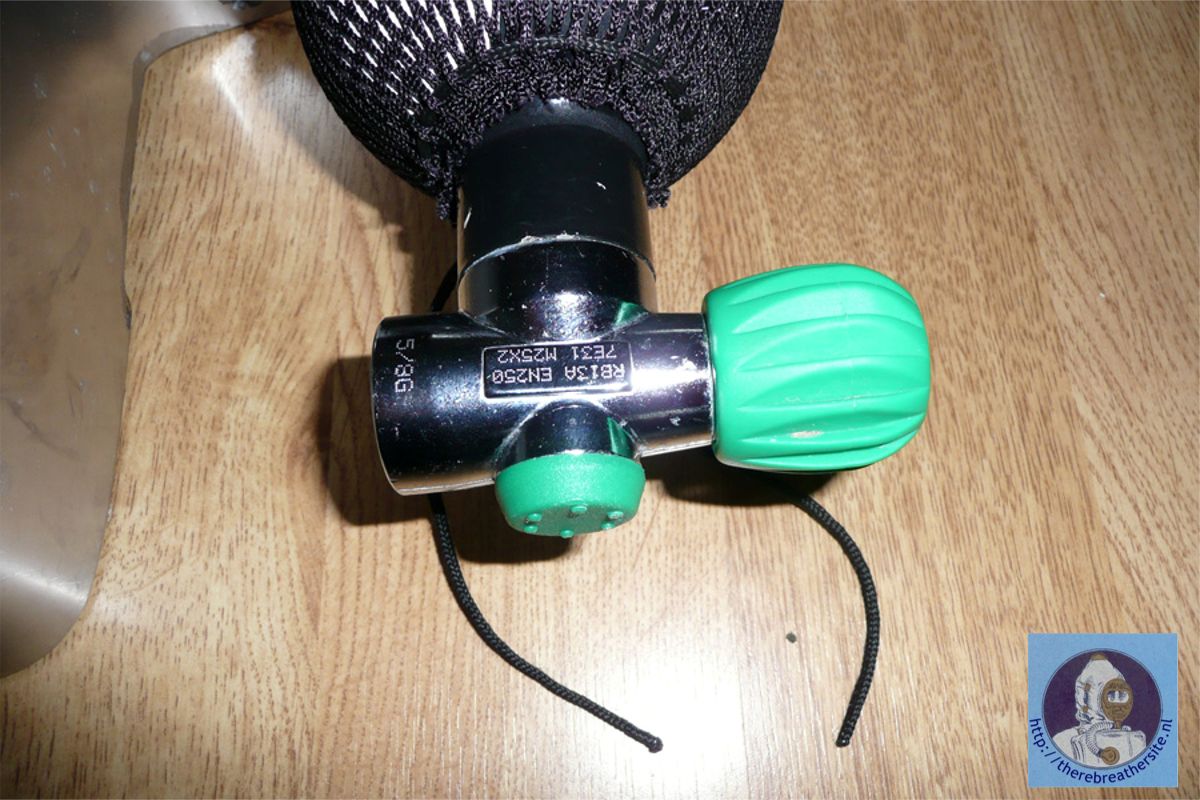 |
|
As first stages I used the very reliable Apeks DS4. The oxygen side
has been made closed with a ring from
www.tecme.de.
I also installed an overpressure valve to protect the oxygen
booster. |
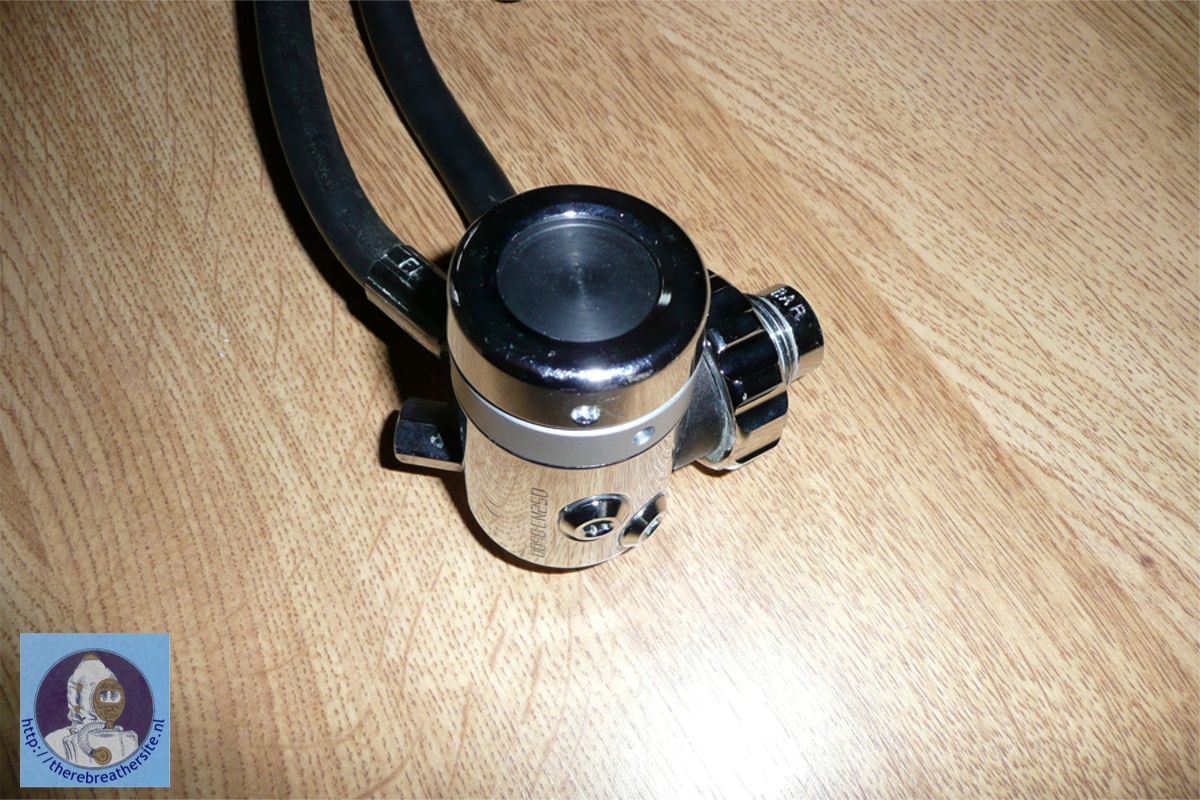 |
|
Top view of all components installed. It can be put on the Dolphin
in 1 hour. In the middle you see the two ports for injecting diluent
and oxygen. On the diluent side, left, I installed a three-way
mid-pressure manifold-block to connect the bail out octopus, the
inflator for the wing and the drysuit inflator. |
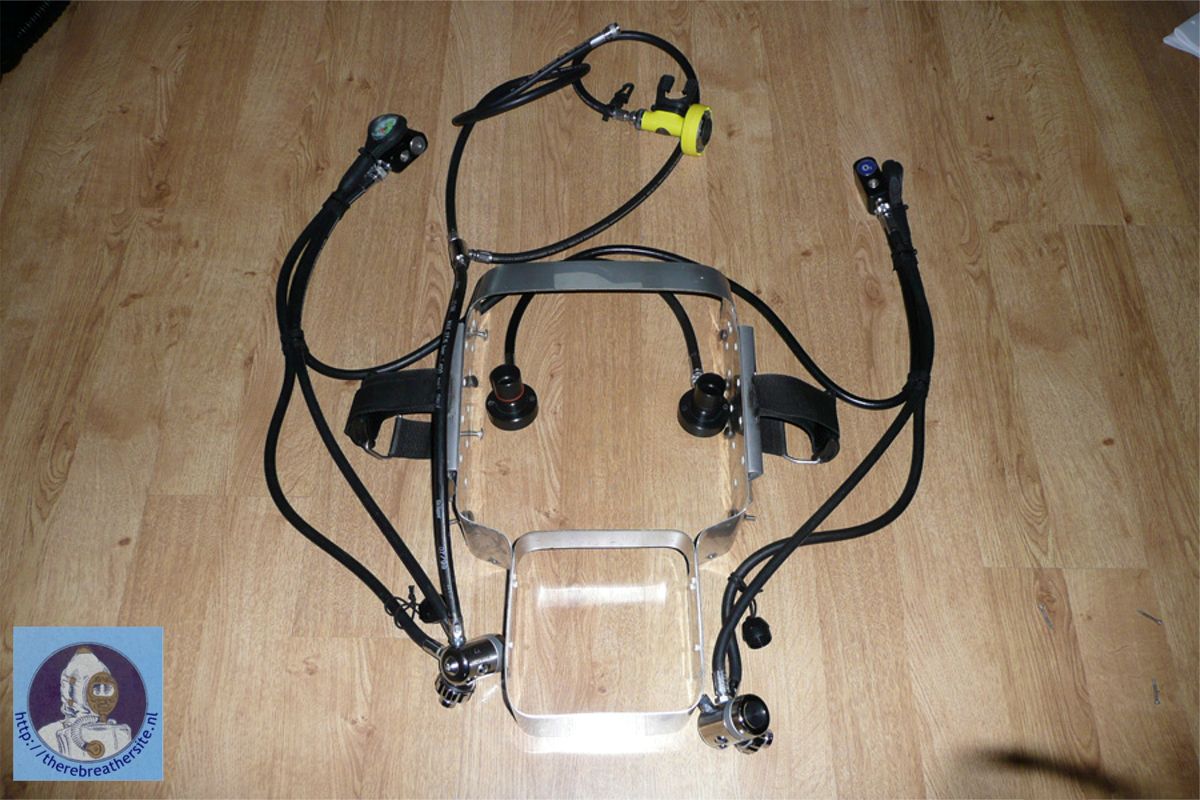 |
|
Top view with bottles. |
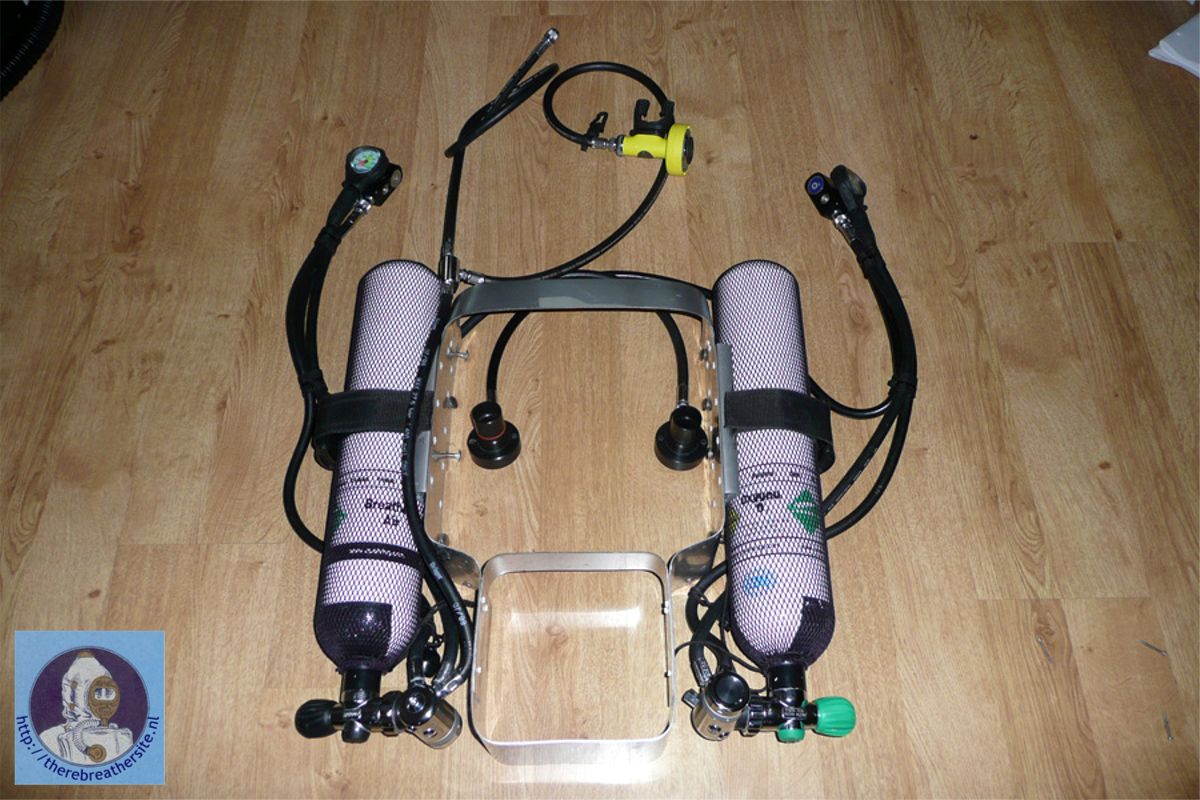 |
|
The oxygen booster from Submatix, available at
Submatix or
www.scubaservices.nl
in The Netherlands. I connected the booster on the pressure
gauge, but made sure that I always am able to disconnect the oxygen
inflator. The booster is fully adjustable to any CMF (constant mass
flow), and easy to use. |
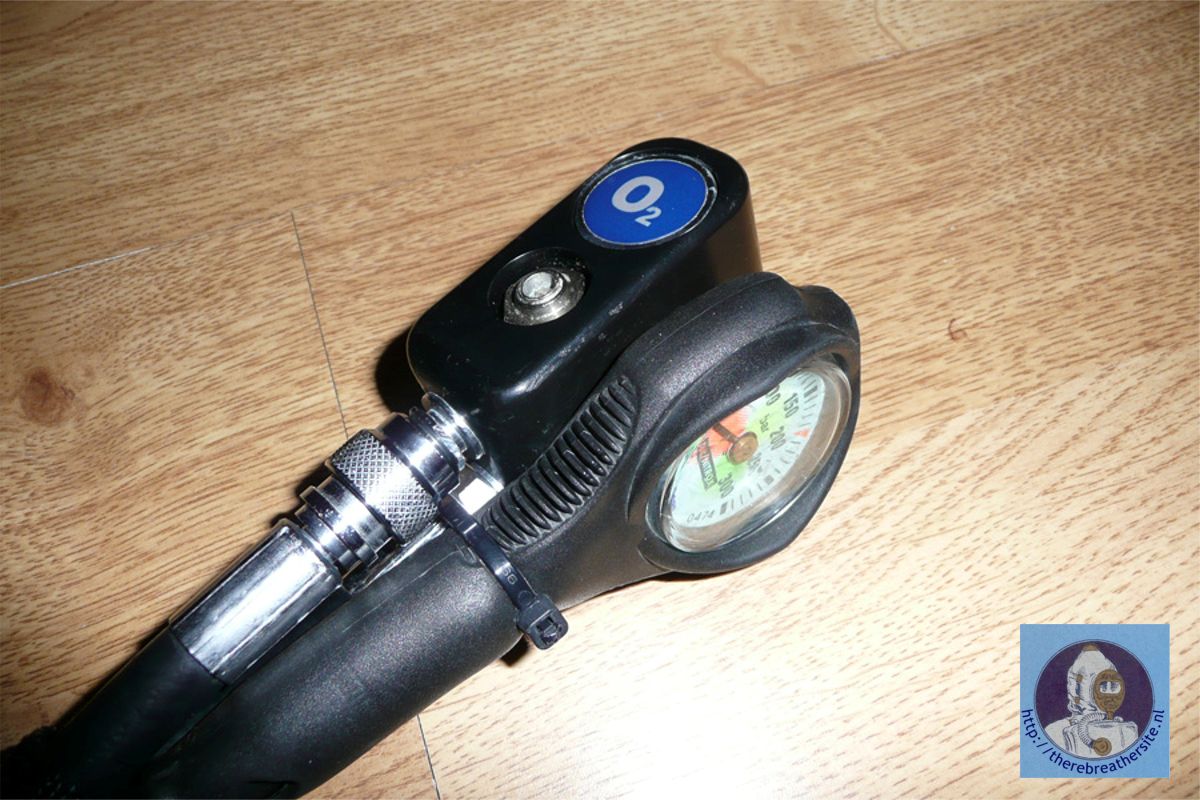 |
|
Also the diluent booster is easy to use. Of course the boosters can
be set to any CMF, but I closed that valve in the diluent booster.
There is only diluent injected when the button is pushed. |
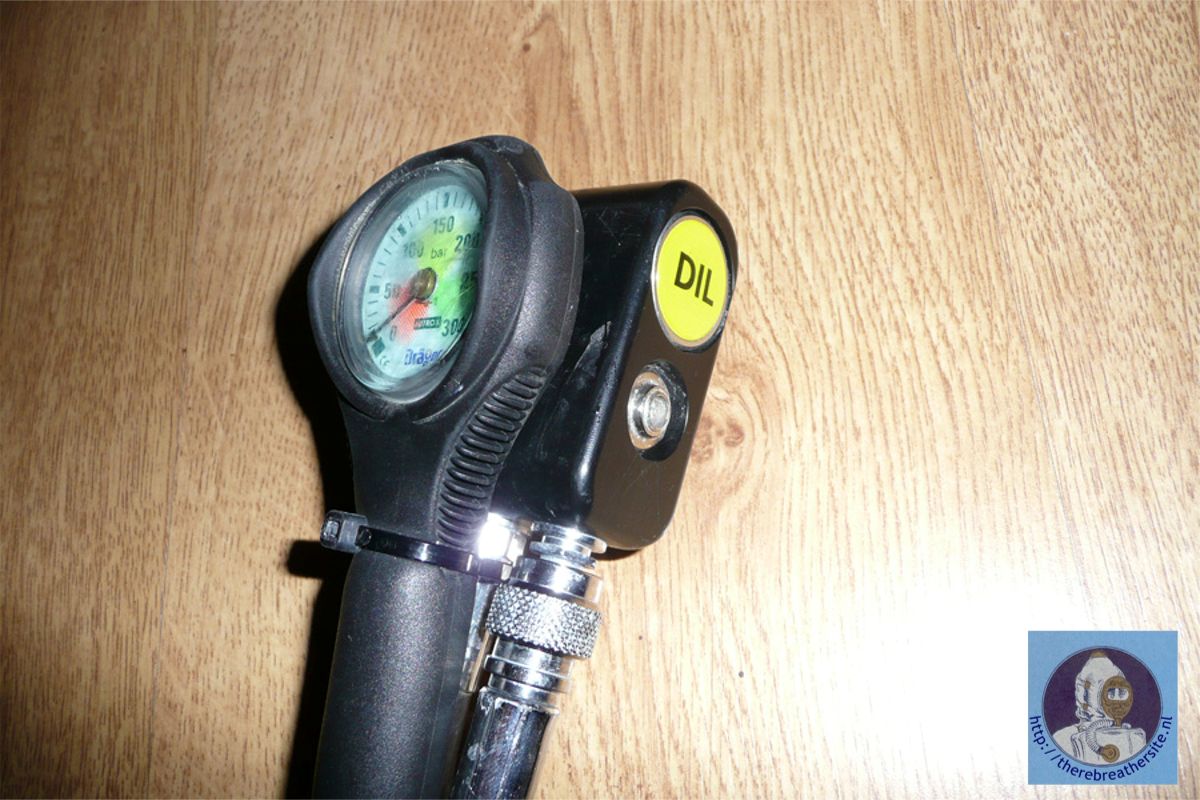 |
|
View of the backside with installed frame. |
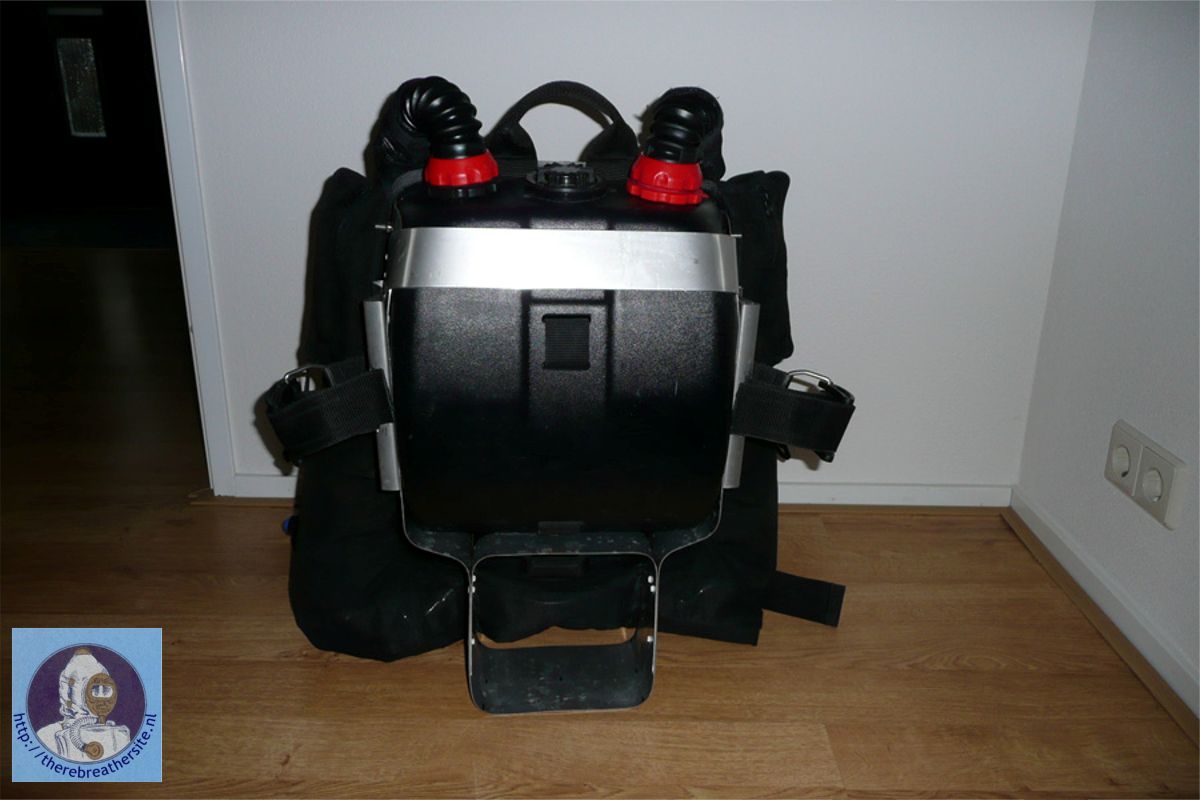 |
|
Installed hoses. |
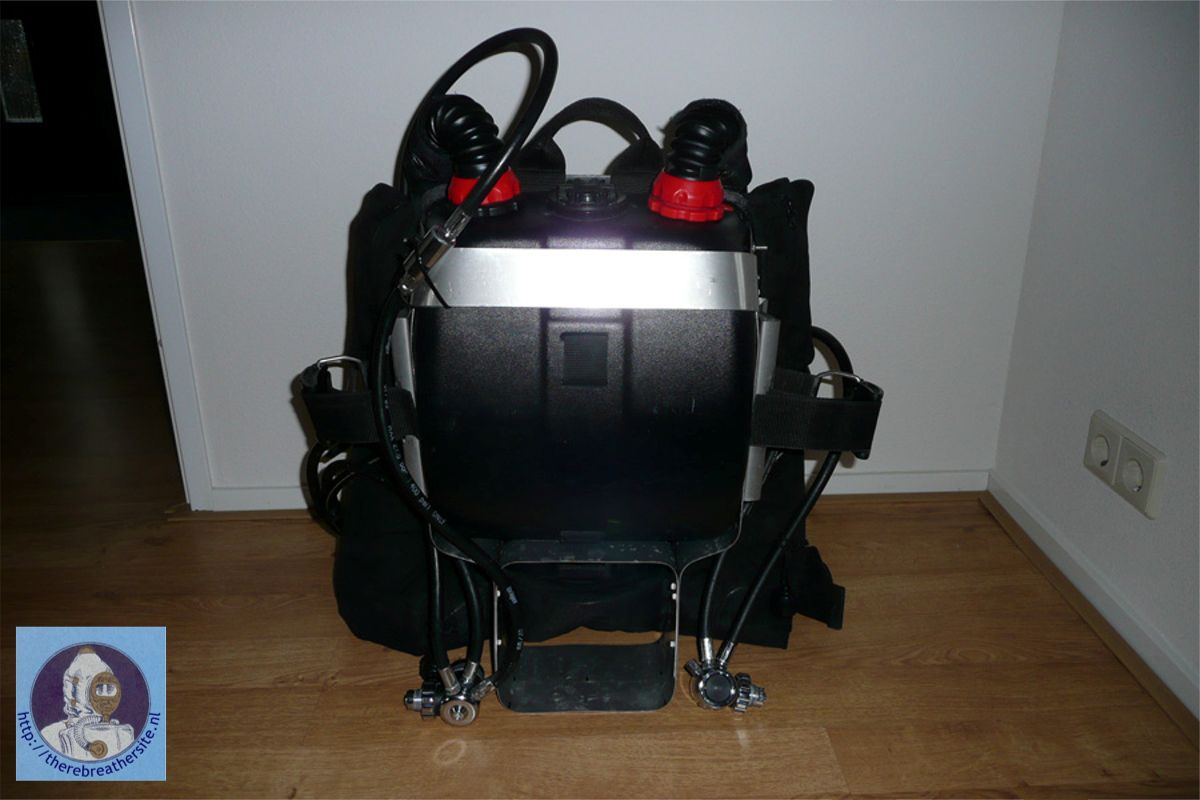 |
|
For PPO2
monitoring I used a Submatix Oxygauge. I chose to not use the
original ADV. Actually, I did not install any ADV. I found it so
easy to use the diluent booster that I took the ADV out. On the
Apeks DS4 there is an extra connection possibility when I want it
later. The boosters are very well placed. During the dive when I
move my arms forward I automatically touch the boosters. The gauges
are easy to read. In the inhale lung there is an extra p-port (the
one for the ADV) to add an extra PPO2 monitor. For the tables I use
a Buddy Nexus computer. This computer is made for use with the
Classic Inspiration. It can be used with open circuit and closed
circuit. |
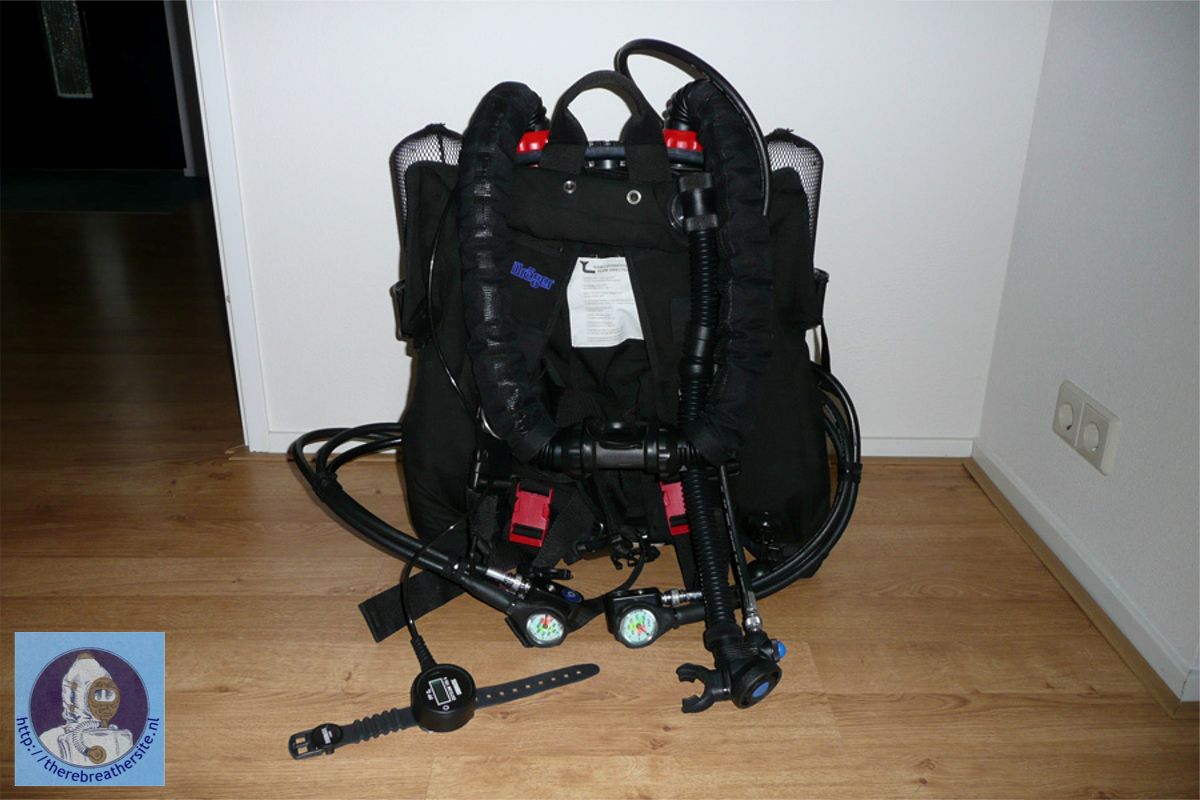 |
| Thanks Erik for sharing this information! |
| page made 23-01-2008 |
| Menu homebuilders |
| Please sign my Guestbook |
| Email: jw.bech@quicknet.nl |
Erik build a manual operated closed circuit rebreather from
his Dolphin. As you will read in this article many nice design features are used
to build a reliable simple but high quality rebreather.
I would like to thank Erik for sharing this information with us!
Mainmenu:
Search this Website
Information about RB
Photo galleries
Historical Information
Links & Downloads
Reviews
Homebuilders
Electronics
Updates, speed menu
Web shop
Reviews SC rebreathers
Reviews CC rebreathers
RB’s through the ages
Inspiration rebreather
Database Oxygen RB’s
Database Semiclosed RB’s
Updates
Speed menu
Search this web
